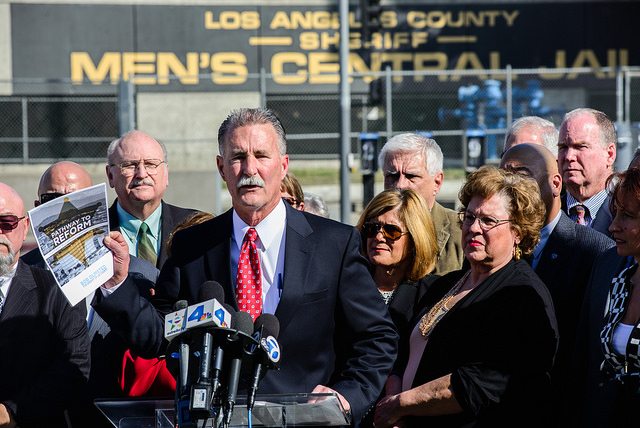 Ask viewers what they want to see on local TV news and politics never pops to the top of the list. But ask people if they care about where their tax dollars go or about the services governments provide and the answer is obviously yes. The challenge for journalists is to cover elections and the work of elected officials with citizens in mind. Reporters who ask the basic question, “Who cares about this?” when covering government at all levels are able to find people whose lives are affected by what government does; stories that feature those people are much more interesting to the audience.
Ask viewers what they want to see on local TV news and politics never pops to the top of the list. But ask people if they care about where their tax dollars go or about the services governments provide and the answer is obviously yes. The challenge for journalists is to cover elections and the work of elected officials with citizens in mind. Reporters who ask the basic question, “Who cares about this?” when covering government at all levels are able to find people whose lives are affected by what government does; stories that feature those people are much more interesting to the audience.
Much of the business of government is conducted in meetings, so reporters on the city hall or state or national capitol beat can expect to cover plenty of them. But a dull meeting does not justify a dull story. The best stories about meetings focus not on what happens in the room but on the impact of the decisions that are made.
“Follow the money” is good advice for all journalists but particularly for those covering government and politics, so learn how to read and interpret a budget and other financial statements. Documents, in general, are the lifeblood of government, so beat reporters must be able to obtain them, understand them and interpret them for the audience.
That’s exactly what WTVF in Nashville did in a series of reports about rampant “cronyism” in the administration of Tennessee Governor Bill Haslam.
Good reporters don’t just cover government from the top down. Charlotte Grimes, a longtime political reporter who now teaches at Syracuse University, says government action also “bubbles up from the public.” So beat reporters need to pay attention to local concerns that could or should be addressed by elected officials. Her top ten hints for covering government are a useful starting point.
Political reporters basically have one central mission: to provide citizens with the information they need to make an informed choice among the candidates for elective office. To do that, journalists need to examine the candidates’ backgrounds and qualifications, their positions on the key issues, and what they’re saying in campaign appearances and advertising. Reporters who cover politics also look at the candidates’ supporters, because their interests can often shed light on what a politician will do if elected.
Good political reporters do not simply tell where the candidates stand on the issues; they also ask what the candidates have done about those issues in any previous elected office they have held. And to bring the issues to life, reporters look for people whose individual stories can illustrate why the issues matter and what difference it would make to them if one candidate or the other wins the election.
Finally, there’s the perennial issue of how to cover opinion polls and the campaign “horse race.” Experienced reporters keep an eye on the polls, of course, but they don’t let the numbers dictate their coverage. It’s a simple matter of fairness, always critical when covering politics.
Candidate photo by Flickr user Neon Tommy








